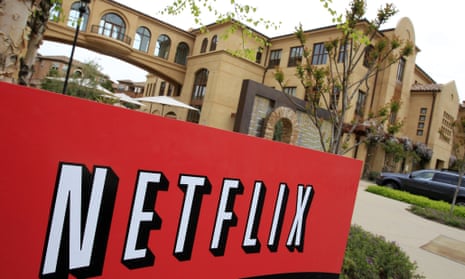More than 30 million Netflix users live in countries where the service is unavailable without the use of location-masking software, giving the company a hefty financial incentive not to crack down on members who use the technological loophole to watch content not authorised for their country.
The figures, which come from market research firm GlobalWebIndex, show that Netflix has more than 20 million users in China alone, all of whom must connect through virtual private networks (VPNs), as the streaming video provider has not yet launched in the country.
Not every Netflix “user” is a subscriber to the service, however. GlobalWebIndex surveyed almost 200,000 individuals across 32 markets, and asked how many of them had watched Netflix in the previous month using a VPN. A significant proportion of those saying they had will have watched at a friend’s house, or been sharing a username with others – indeed, as of October 2014, the company had 16 million international members, significantly less than the total number of users of the service.
“Account sharing is pretty widespread,” says Jason Mander, Head of Trends at GWI. “Our numbers are always going to be higher than the number of paying subscribers.”
Nonetheless, he says that the figures show that Netflix would be “be shooting themselves in the foot if you blocked considerable levels of traffic coming from outside your official countries … the fact that it’s already talking to them and getting money from them is a good thing.”
And it seems Netflix agrees: the company’s chief product officer emphatically denied rumours that it had been cracking down on VPN users at this year’s Consumer Electronics Show in Las Vegas.
“The claims that we have changed our policy on VPN are false,” said Neil Hunt. “People who are using a VPN to access our service from outside of the area will find that it still works exactly as it has always done.”
Netflix can’t welcome VPN users too openly, however, since the company’s fraught relationship with content providers hinges on them enforcing international restrictions. “I think the tension here is that it’s not a problem for Netflix per se,” says Mander. “The actual studios might be much more concerned about it. But by the nature of how a VPN works … it’s very difficult to tell if someone’s using one.”
One of the outcomes of the Sony Pictures hack has been evidence of just how much Hollywood studios care about VPN usage, as emails from 2013 show a Sony exec complaining that “Netflix do not closely monitor where some of their subscribers are registering from and don’t take steps to counter circumvention websites that allow people… to subscribe illegally”. He specifically cited Australia and South Africa as countries without legal Netflix services despite high penetration. GWI’s figures show that 5% of internet users in those nations accessed the service in the last month.
Mander says that accessing better entertainment content is “by far the most common” reason for using VPN services. “Beyond that, accessing social networks is big in places like China. Then there’s quite an important group of people who are using them to hide their identity, particularly in France, Germany and the UK.”
